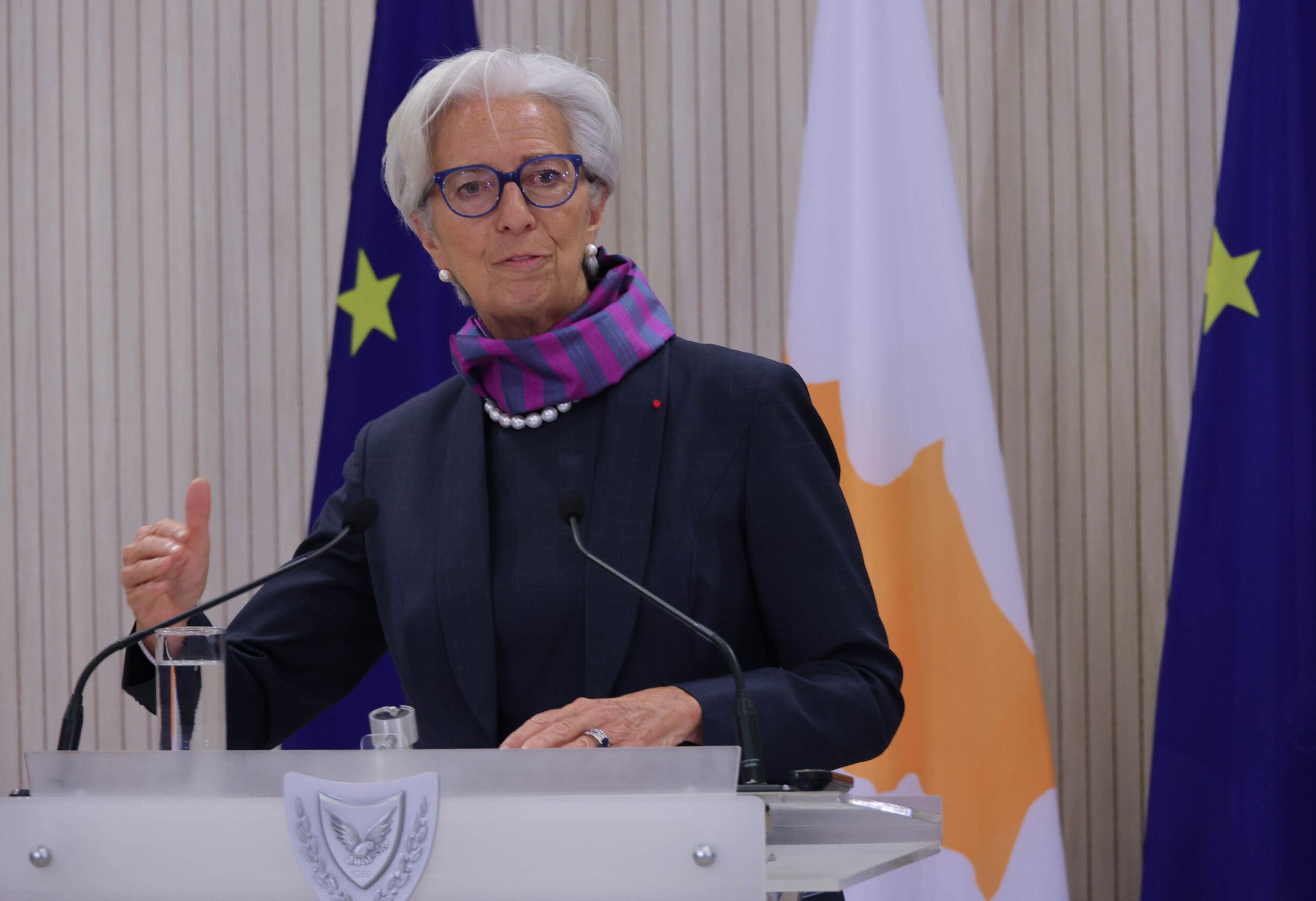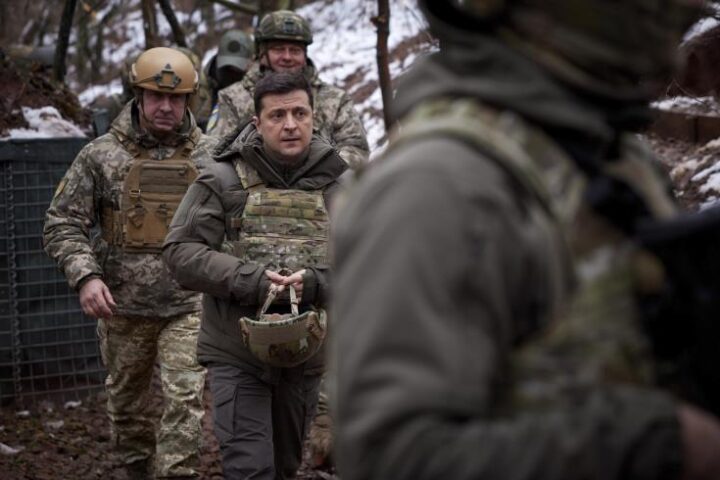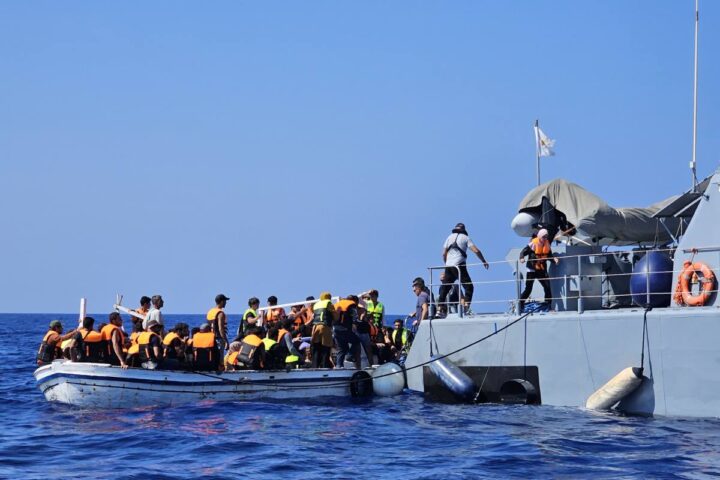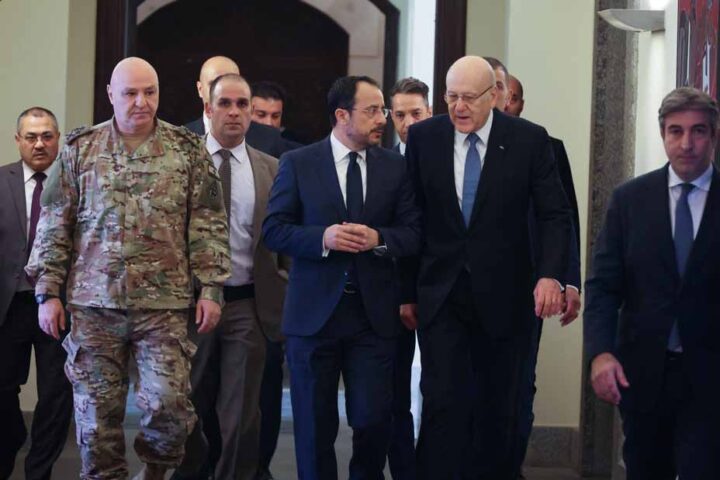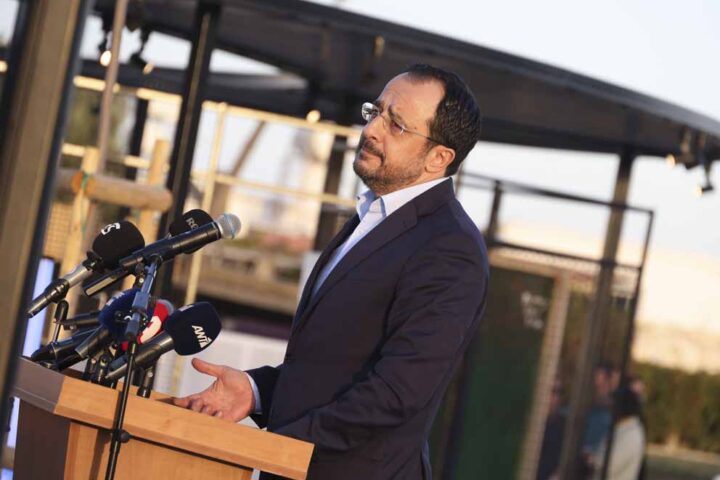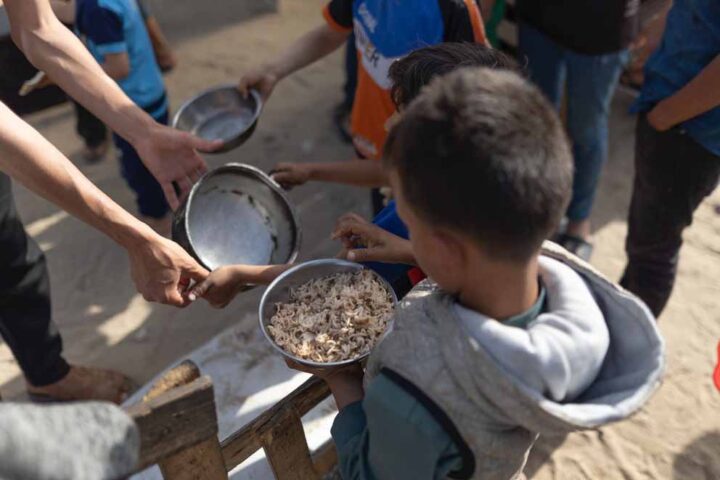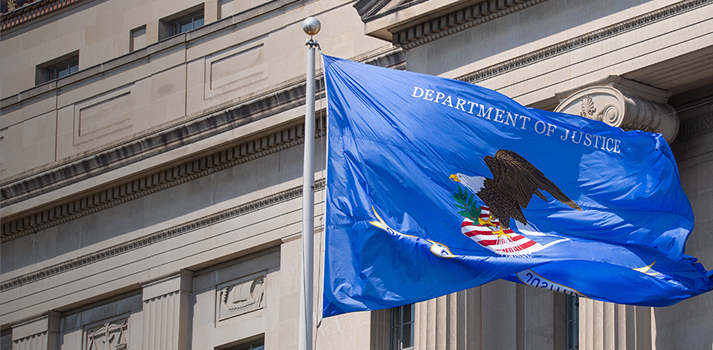European Central Bank President Christine Lagarde warned Wednesday that a prolonged Ukraine conflict would keep energy prices and the cost of living for Europeans spiralling.
During her visit to Cyprus, she said the Russia-Ukraine war had introduced “considerable uncertainty” into the outlook for the EU economy.
She said it had stunted a quicker-than-expected rebound from the COVID19 pandemic with a job-rich recovery.
“The economic impact of the war is best captured by what economists call a “supply shock”, which is a shock that simultaneously pushes up inflation and reduces growth,” she told an event in Nicosia.
Lagarde said energy prices are expected to stay higher for longer, with gas prices up by 52% since the start of the year and oil prices up by 64%.
And the pressure on food inflation is likely to increase.
“Russia and Ukraine account for nearly 30% of global wheat exports, while Belarus and Russia produce around a third of the world’s potash, a key ingredient in producing fertiliser, thereby exacerbating supply shortages.
“Global manufacturing bottlenecks are likely to persist in certain sectors.”
Russia is the world’s top exporter of palladium, which is key for producing catalytic converters.
Ukraine supplies around 70% of the world’s neon gas, critical for semiconductor manufacturing.
“As the euro area is a net importer of energy, rising energy prices mean a loss in purchasing power for consumers,” said Lagarde.
She said households are becoming more pessimistic and could cut back on spending.
“Consumer confidence this month has fallen to its lowest level since May 2020 and stands well below its long-term average.”
Based on national surveys, households’ growth expectations have worsened while their inflation expectations have risen.
“This suggests that people are expecting to see their real income (i.e. their income adjusted for inflation) squeezed.
“Households are likely to save less, which should absorb part of this shock, but they have also revised down their spending plans.”
Lagarde said business investment is likely to be affected.
She said how much inflation rises and growth slows hinges on how the conflict and Russian sanctions evolve.
“Clearly, the longer the war lasts, the higher the economic costs will be and the greater the likelihood we end up in more adverse scenarios.
“With the right policy response, we can mitigate the economic consequences of the war and manage the high levels of uncertainty we are facing.”
The ECB boss said the Ukraine war had underlined the “deep strategic vulnerabilities in our security and trade relationships, which we can only address by being more united”.
Brussels has announced ambitious goals, such as doubling Europe’s global market share for semiconductor production to 20% by 2030.
Reduce demand
Last week, Europe’s leaders agreed to reduce demand for Russian fossil fuels and bolster our energy security by diversifying liquefied natural gas (LNG) supplies and investing more in clean energies.
“Europe needs a plan to ensure that the necessary investment comes online as quickly and smoothly as possible, with public and private finance reinforcing each other.”
She said the ECB “will take whatever action is needed” to pursue price stability and safeguard financial stability.
“The best way that monetary policy can navigate this uncertainty is to emphasise the principles of optionality, gradualism and flexibility.
“Any adjustments to the key ECB interest rates will take place sometime after the end of our net purchases under the APP and will be gradual.”
Lagarde said Europe is entering a “difficult phase” in the short term with higher inflation and slower growth.
“The longer the war lasts, the greater the costs are likely to be.”

